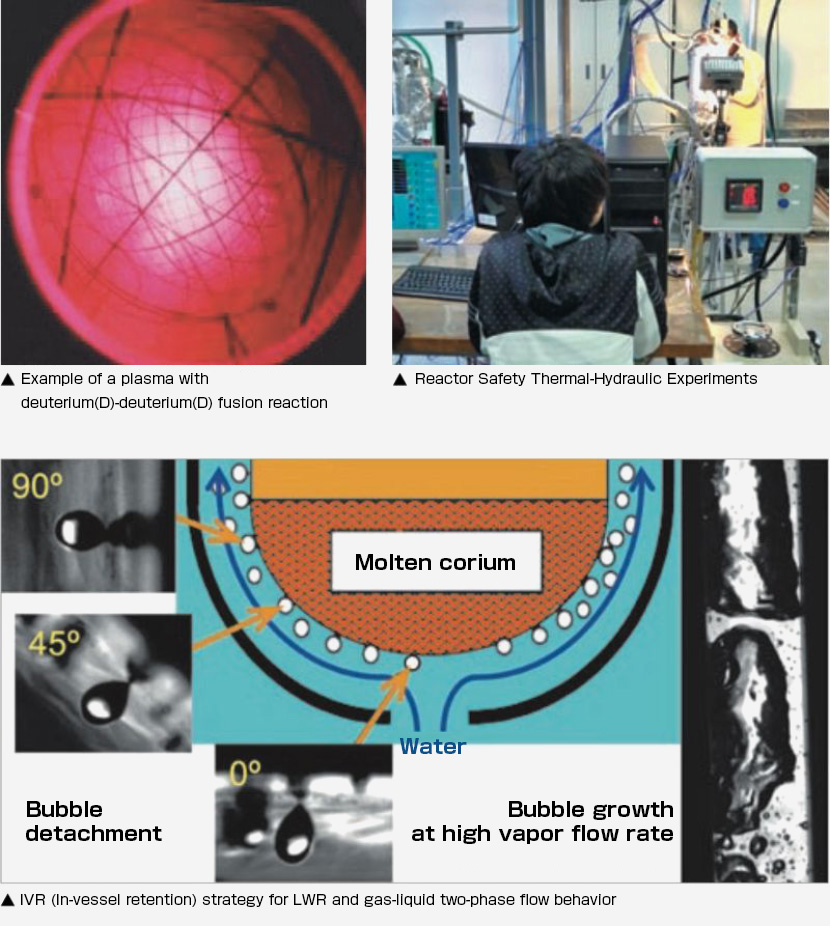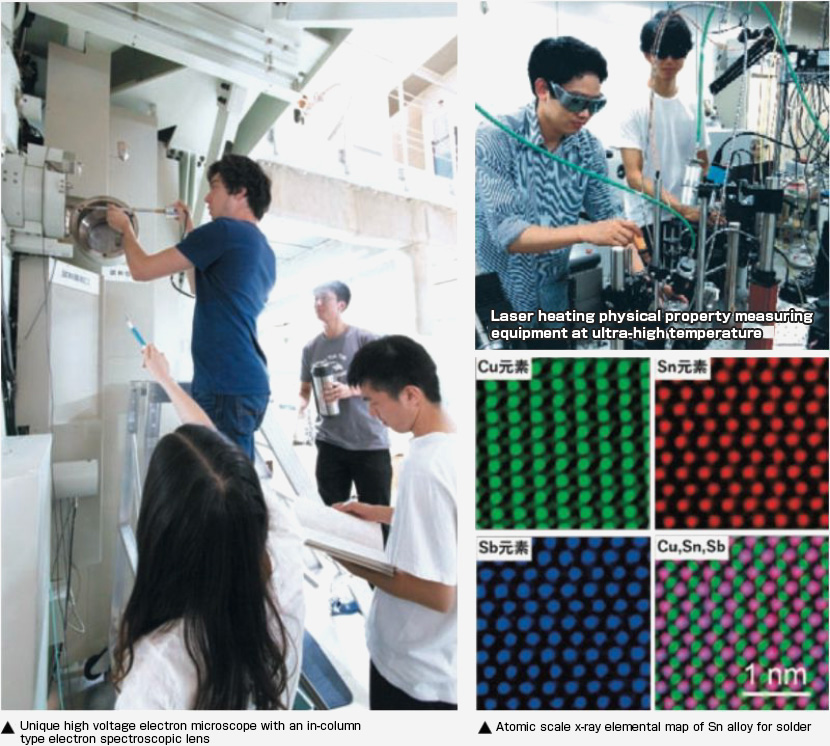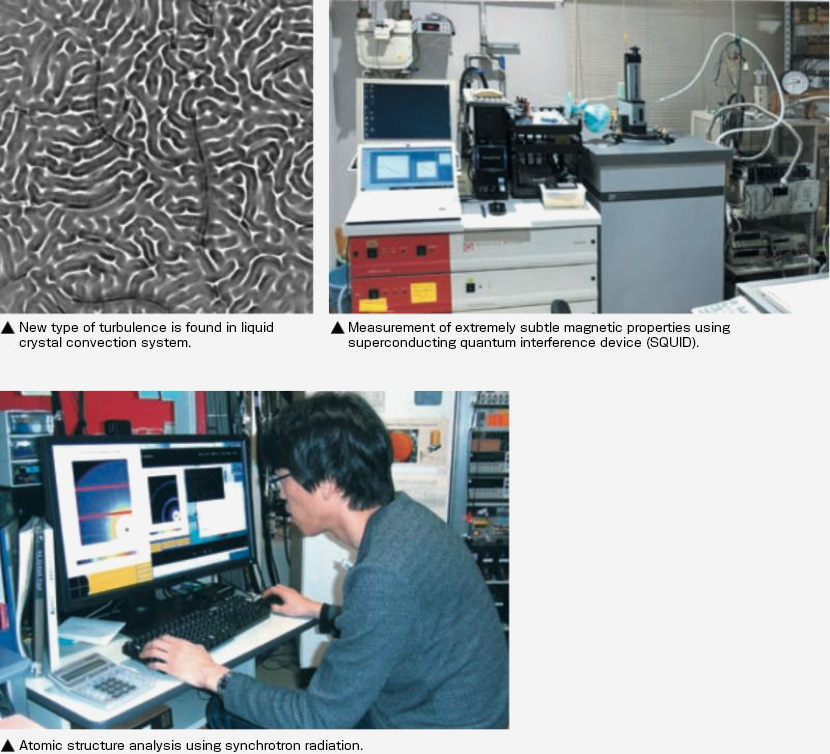Quantum beams of ions derived from the accelerator and secondary beams such as neutrons and gamma-rays produced by the beams are widely used for various purposes, for example, for fundamental scientific research on nucleus and elementary particles, application to cancer therapy, development of materials with new functions, and so on. We carry out experimental and theoretical study on nuclear reactions and interaction between the beams and materials. We also develop new “FFA accelerator” and radiation measurement apparatus utilizing superconductivity.

We are conducting education and research on the development of attractive nuclear energy systems such as future nuclear reactors and fusion reactors with excellent safety and reliability, as well as on issues that arise in the use of nuclear energy and their solutions. Through theoretical and numerical simulations, basic experiments, and large-scale experiments involving nuclear reactions, we are engaged in advanced research on the fundamental physical phenomena involved in nuclear energy systems, and on the development of technologies for these systems from the viewpoint of engineering systems. Based on reactor physics, fusion reactor and plasma science and engineering, thermal hydraulics, nuclear safety engineering, etc., the department strives to develop human resources who can flexibly respond to various social demands for future nuclear energy systems by acquiring basic and applied skills.

It is no exaggeration to say that materials control the success or failure of all systems used by humankind. In this department, we provide education and research on the behavior of functional materials under extreme radiation environments, such as with gamma rays, electrons, and neutrons, and on analysis of the atomic and molecular structure. We also investigate intensively the atomic and electronic states of materials using quantum beams, and evaluate of various physical and chemical properties of materials.
Our interests cover various materials which are deeply involved in quantum physical phenomena: materials used in nuclear reactors and future fusion reactors, including nuclear fuel, nuclear waste forms, and magnetic materials, spin electronics materials, catalyst materials, and so on. Our researches also include the development of novel techniques and devices to elucidate the atomic and molecular structures and electronic states of such quantum functional materials.

In this department, we offer education and carry out a wide range of research aiming to use basic physical phenomena and characteristics of materials to develop applied technologies on the cross of basic science and engineering. The world today facing various environmental issues and resource depletion. Our research goal is to develop various novel approaches to applied technologies based on physical principles helping to solve these issues. Our specific interests lie in new quantum many-body physics (strongly correlated electron systems, quantum spin systems, spin frustration, etc.), experimental research on materials for nano-electronics, properties of two-dimensional materials such as graphene, and non-equilibrium open systems. Future devices based on these technologies are promise to be much more efficient while having less impact on environment. Also, a wide range of material research carried out is focused directly on environmental problems, such as solving pollution problems by removing harmful substances (such as heavy metals) using various adsorption gels, study of biological photons generation in response to stress, research of complex convection phenomena using liquid crystals, developing micro actuators based on elastomers.
